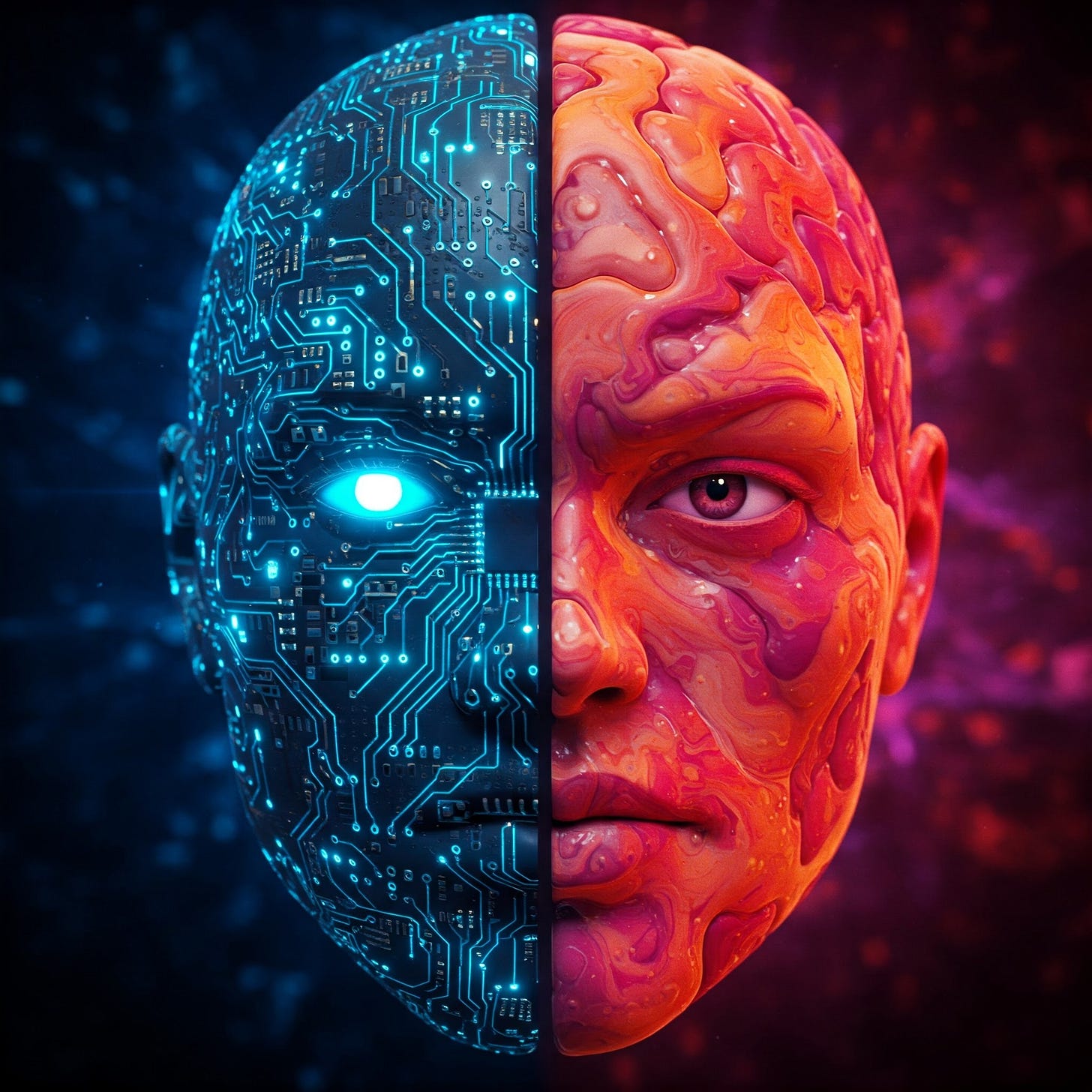The Human Edge: Why AI Can't Replace Intuition
Why being emotionally even keeled could make AI researchers bad at science.
In 1984, Barry Marshall had reached his breaking point. He had spent years tirelessly researching the true cause of stomach ulcers, only to be dismissed again and again. The medical establishment had made up its mind: ulcers came from stress and diet. The idea of bacteria surviving in the stomach's acidic environment was absurd, laughable even.
But Marshall wasn't laughing—he was furious.
Fed up with rejection, Marshall did something an AI would never even dream of: he poured a beaker of bacteria and drank it down, determined to prove his critics wrong.
Within days, Marshall was violently ill. His theory was confirmed—he had successfully given himself ulcers. He took antibiotics, cured himself, and forever changed medical history.
No amount of logic or data crunching could have driven an AI to such a reckless act. Yet it was Marshall's anger—raw, powerful, and profoundly human—that propelled him to make one of the most important discoveries in modern medicine.
The Gap Between Theory and Practice
Barry Marshall wasn't reacting to a single rejection letter. He was responding to years of lived experience—repeated dismissal and ridicule from his peers. His personal journey, combined with his research data, pushed him to make that radical decision.
If an AI researcher had been assigned Marshall's problem and received the same lack of support, it might have analyzed more patient data, generated new models, or run further controlled simulations.
But would it have recognized that no one was listening—and made a bold, irrational move to force the world to see the truth?
History's Greatest Breakthroughs Often Come From Human Emotion
The annals of scientific discovery are filled with breakthroughs driven by uniquely human qualities:
Louis Pasteur took an enormous moral risk by giving an untested rabies vaccine to a dying child—because his compassion wouldn't allow him to stand by and do nothing. The urgency of human suffering drove him to action where caution would have dictated restraint.
Wilhelm Röntgen became obsessed with an unexplained glow in his laboratory and investigated it with passionate curiosity, even working in secret for weeks. This obsession led to the discovery of X-rays—technology that has saved countless lives.
Alexander Fleming returned from vacation to find mold killing bacteria on his petri dish. Instead of discarding the contaminated sample (as protocol might suggest), he felt an intuitive pull to study it further. This moment of curiosity and intuition led to the discovery of antibiotics.
Each of these breakthroughs shares a common element: they weren't just about the data. They were about human emotions—anger, compassion, curiosity, and intuition—driving scientists to pursue paths that pure logic might have dismissed.
Why AI Stumbles Where Humans Leap
When your entire universe consists of numbers, equations, graphs, and simulations, it's easy to assume everything works the same way. But humans collect and process intelligence differently than computers do. Our intelligence is filtered through lived experience, colored by countless interactions we could never fully articulate or even consciously remember.
Consider these everyday examples:
A chef taste-testing a dish might experience a sudden flash of a childhood meal memory, inspiring the addition of an unexpected ingredient that transforms the recipe.
A painter might work what appears to be a misguided brushstroke into a brilliant new design direction that no algorithm would have suggested.
A musician might hear a melody and instinctively hum a specific chord progression because of an emotional connection to a song from their past.
What makes these decisions meaningful is that they could only have come from specific individuals with specific experiences. Truly unique results require unique data points—not just more data, but data filtered through human experience.
Intuition isn’t Knowledge
Your intuition isn't just about raw knowledge—it's about how your personal history shapes your perception of the present moment. AI can simulate logic and pattern recognition with impressive accuracy, but it cannot feel the significance of a moment the way a human can.
That's why the most powerful serendipitous discoveries—especially in areas involving sensory experience, emotion, and intuition—will continue to come from humans rather than AI.
The most important breakthroughs often don't follow a straight line of logical progression. They come from frustration, passion, and that distinctly human ability to say, "To hell with convention—I know I'm right."
The next time an AI tells you the statistically optimal path forward, remember Barry Marshall and his beaker of bacteria. Sometimes the greatest leaps forward come from that uniquely human place: the willingness to take a risk because you're just too damn angry to do anything else.
As always I’d love to hear your thoughts.



